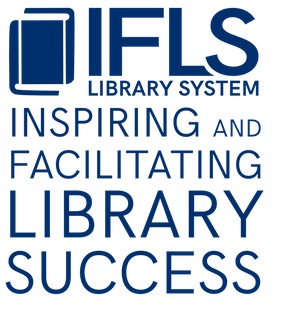.
Teen Advisory Groups
Can’t find what you’re looking for here? Use this search box to search the IFLS Article Index.
Need more help?
Click on the green HelpDesk button and we’ll make sure the right IFLS staff gets that message right away. Can’t find the green button? Use this email: helpdesk@ifls.lib.wi.us.
There’s no wrong door! Your IFLS staff for support on this topic:
Leah Langby, Library Development and Youth Services Coordinator langby@ifls.lib.wi.us
Do you have a hard time getting teens into the library, or to the programs you work so hard to provide? Teen Advisory Groups can help you plan and promote services and programs with teens, which can increase your success.
General Tips and Guidelines
- Find out what they want to do and how they want to contribute and let that guide your decisions about how the group focuses their energy and attention. Remember this will change and shift as teens move on and off the group and as their interests shift.
- Since the purpose of a Teen Advisory Group is to hear the voices of teens, be sure that you listen to and respect the teens in your group.
- Guide, moderate, and help, but do not take over.
- Create an agenda for each meeting, but be flexible. They might come in with a new idea or concern, or they might have had an especially stressful week and need to go off the rails a bit.
- Provide a chance for people to socialize at the beginning of each meeting—it can make it easier for them to stay on track once you start.
- Seriously consider providing food—a bag of apples, some pretzels…You don’t have to provide expensive food at every meeting, but having a snack makes for a happier and more engaged group!
- Let teens know about boundaries you have (for example, no hate speech, no swearing, no yelling), but be reasonable—expect some giddy energy.
- Consider providing something to do with hands during the meeting. This can help some kids focus. You can give them display or craft materials to prepare, envelopes to stuff, or supplies for doodling or coloring or sculpting.
- Be realistic. Allow enough time for planning and executing a project so you don’t end up having to take over. Be honest with teens if you think their idea is not going to work, and ask them if they have suggestions for how to manage that.
- Expect an ebb and flow with attendance. Try not to lose hope, but do be flexible on timing, and consider making meetings less frequent if you can’t get kids to come monthly (or whatever you have set up).
- Have goals that make sense. The teens aren’t going to take over all collection development, but they can make suggestions, or supply you with a list of materials they like so you can use that to guide selections in the future.
- Have fun. You are working on a serious thing, but remember to allow some time for fun, and don’t be afraid to plan in some things that are just plain fun.
Formats
- You can have the group elect officers. Or not. Whatever works best for your situation.
- You can meet monthly, or every other month, or quarterly. It depends on what you are trying to do with the group and what your goals are.
Possible tasks and projects
- Displays
- Create displays of materials (favorites, or on a theme)
- Create displays to promote a program
- Create displays to promote awareness of a topic or community resource
- Create interactive displays (scavenger hunts, feedback boards, etc.)
- Programs
- Provide feedback, suggestions, ideas for programs
- Help develop single programs (like a Fandom party)
- Help develop more complicated programs (like a Hackathon that includes several instructional programs as well as the actual Hackathon, or a photography contest that includes photography workshops)
- Connecting with the community/social justice/volunteer projects—either for the TAG itself or for a larger teen audience
- Helping choose prizes for programs like Summer Library Program
- Collections
- Make suggestions of titles or genres to purchase
- Take a yearly field trip to a large bookstore to choose things
- Space/Furniture
- Give input on the layout, space, furniture choices, colors, and décor for new spaces, refurbishing spaces
- Publicity/Advocacy
- Help promote library use and program attendance with peers
- Creating
- Advocate with elected officials (local, state, and national) about the library
Recruitment
- Visit the school:
- Class visits with language arts teachers
- Lunch time visits with something interesting to draw kids to your table
- Connect with after school clubs
- Invite the homeschooled teens who use the library—also connect through homeschooling groups
- Talk to teens who use the library (including the teens who just use computers)
- Make sure teens know they can count this as volunteer hours/community service, and that it looks good on job and college applications
- Some libraries require kids to fill out a simple application. Others do not. If you want kids to fill out an application, be sure you know why you are collecting it.
Resources
- 2019 School Library Journal article about Teen Advisory Boards
- Out-of-School Time and Community Programs TAG Resources from Youth.gov.
